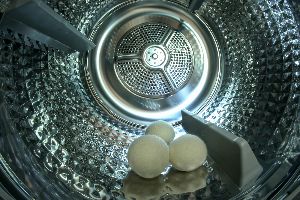Is Fabric Softener Bad for My Septic System?

Most homeowners who rely on septic systems are diligent about keeping fat, oil, and grease, out of their drains. But many other everyday products can hinder the plumbing, cause blockages, and kill the microbes needed to break down the waste. Fabric softener is one of the worst culprits because it's used often. If your home has a septic system, here's what you should know before you add fabric softener to your next load of laundry.
How Does Fabric Softener Affect Septic Systems?
Most of the leading fabric softeners contain two problematic ingredients: petroleum products and quaternary ammonium compounds. Petroleum products are comprised of oil and make clothes feel especially soft because they leave behind a thin layer of a waxy-like substance. That's why they should never be rinsed down the drain—they can solidify in lower temperatures and clog the pipes. They also don't break down in water. Instead, they typically form a layer of scum at the top of the septic tank, and the only way to get rid of it is through pumping.
Quaternary ammonium compounds, or "quats," on the other hand, are cationic surfactants with disinfectant properties. While you might want to disinfect your towels and clothes with every wash, rinsing antibacterial substances down the drain can kill the septic system microbes that break down waste. This, in turn, will lead to the tank filling up faster. If you don't keep up with the pumping, the tank's contents will eventually back up into the plumbing fixtures.
What Are Septic-Safe Alternatives to Fabric Softener?

Just because you want to protect your septic system doesn't mean you can't enjoy softer linens or apparel. There are a number of viable alternatives to traditional fabric softener. One of the most popular options is distilled white vinegar. A mild acid, vinegar can whiten and brighten laundry. It's strong enough to dissolve sweat, dirt, and residue without damaging the fabric while also softening the weave.
Adding wool or bamboo balls to the dryer is another way to fluff and soften your clothes without hurting the septic system.
Keeping fabric softener out of your drains is just one aspect of maintaining a functional septic system. It's also important to service the equipment as needed and pump the tank every three years. If your system is due for maintenance, call Around the Clock Pumping. Operating out of Anchorage, AK, for more than a decade, this licensed contractor specializes in septic tank repairs and maintenance. They're also equipped to clean grease traps. To request a free quote, call (907) 345-9126 or get in touch through their website.
About the Business
Have a question? Ask the experts!
Send your question

